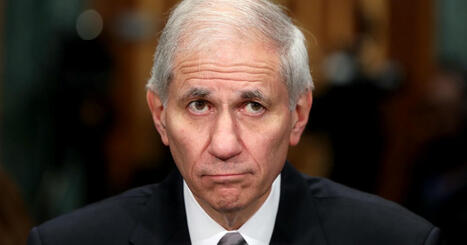What’s the secret to success in business? How does one convert his or her skill set into a climb up the corporate ladder or turn a good idea into a blockbuster entrepreneurial business? The people that do it well become business leaders–CEOs, Chairman, Founders, Partners. There’s no sure-fire method, and a certain amount of luck is needed. But follow the examples set by the successful, and a blueprint emerges. I recently joined Tom Burrell (far left), marketing and advertising pioneer and founder of Burrell Communications, and other successful leaders in a conversation on “Habits for Success” presented by news and lifestyle site, The Root. Click The Root Liveto listen.
Burrell talked about the importance of having a mentor to help set us on the right path and keep us there. I couldn’t agree more. No successful business leader achieved success on his or her own. They each had someone who invested in their success and helped guide the way. So what exactly is a mentor? The important thing is to distinguish between a mentor and simply a friend or caring associate. I once asked Dick Parsons, the former CEO of Time Warner and former Chairman of Citigroup, about that distinction. We spoke about his relationship with Vernon Jordan, the Lazard senior adviser and “first friend” to President Bill Clinton. Parsons considers Jordan a friend and adviser on a personal issues. On occasion, if he was wrestling with something at work or a career move, he would call Jordan for his wisdom and ask for his sense of the situation.
A mentor is someone like Ardie Ivy was to me when I was a college senior grappling with how to forge a career. Ardie, a marketing specialist in Los Angeles at the time, took me under his wing. He made my success his personal mission and responsibility. He helped me forge a 5-year plan, the career equivalent to a business plan, only I was the “business”. Ardie was to me as I suspect Nelson Rockefeller was to Dick Parsons, or as former American Express CEO Harvey Golub was to current American Express CEO Ken Chenault.
Besides having a good mentor, here are four additional “habits” I’ve observed in the successful leaders I’ve interviewed over the years:
1) Confidence & Vision: It’s impossible to be successful unless you believe in yourself and actually see yourself being successful. One of the best examples I can think of to demonstrate this is the vision of Tiger Woods. He is widely considered the best putter in the history of golf. Most likely, you’ve seen him at some point over the past 12 years make seemingly miraculous golf shots and putts. He’s made so many, in part, because he never approaches a putt he doesn’t believe he is going to make. Before hitting it, he envisions the ball going into the cup. That confidence and that vision can be applied to a key business decision or your next career move. You have to see yourself on the pathway to success.
2) Goals & Execution: I’ve never met an executive who set goals and executed any better than Ed Whitacre, the former chief executive of AT&T. When Whitacre was CEO of Texas-based Southwestern Bell Telephone Company during the 1990s, he began setting goals to grow the company from a regional force into a national powerhouse. With the help of his executive leadership team, he then went about executing a plan involving acquisitions of other telephone companies. Each acquisition had to generate a certain synergy that would lead to higher profits and greater “scale and scope,” as he used to say. Whitacre acquired Pac Bell on the West Coast, then Ameritech in the Midwest, then Cingular for wireless assets, then AT&T for long distance. Within a decade’s time he had built the biggest and most successful telecommunications company in the country. Whitacre’s career is a demonstration of one of the seven habits documented in author Stephen Covey’s famous book The 7 Habits of Highly Effective People, “Start with the end in mind.”
3) Time Management: Successful leaders don’t waste time. They are masters at accomplishing the tasks before them. That might mean that they come off as curt sometimes. But don’t be offended. They’re simply practicing the art of what I call, “Get ‘er done!” Consider Procter & Gamble CEO Bob McDonald. He manages the world’s biggest consumer packaged goods company, he has a family and he serves on several corporate and non-profit boards. Still, whenever I have sent him an email over the years, he has replied in less than an hour … every time! (His messages happen to be quite courteous as well.) Remember, this isn’t a guy who gets but a handful of emails per day. He’s inundated by them. Nor are mine ever the most urgent. He is simply and impressively efficient at prioritization and performance. It doesn’t hurt that he is a West Point graduate with great respect for discipline and order. Whatever the reason, his behavior underscores the relevance of getting things done swiftly.
4) Hard Work: This might be obvious, but it’s universal among successful leaders. The thing is, hard work is subjective. Most of us might get to the office at 8 am and leave at 6 pm and think we’re working hard. Well, my experience says, think again. I’ve never met a star in business or anywhere that isn’t working around the clock. Did you know that Michael Jordan often went back to the gym to shoot jump shots after his team won a basketball game? Certainly, you’ve heard the stories of San Francisco 49er Jerry Rice running 80 yards to the end zone after catching a 10-yard slant pass … in practice! Well, the same approach applies to work in the office, whatever your vocation might be. In the years that I shadowed Rev. Jesse Jackson as he criss-crossed the country advocating for civil rights on Wall Street and in Silicon Valley, he never started his day after sunrise. Not any day.
Via Daniel Watson






 Your new post is loading...
Your new post is loading...






























Los habitos hacen triunfar en los negocios, y surge tú Lider Interior.